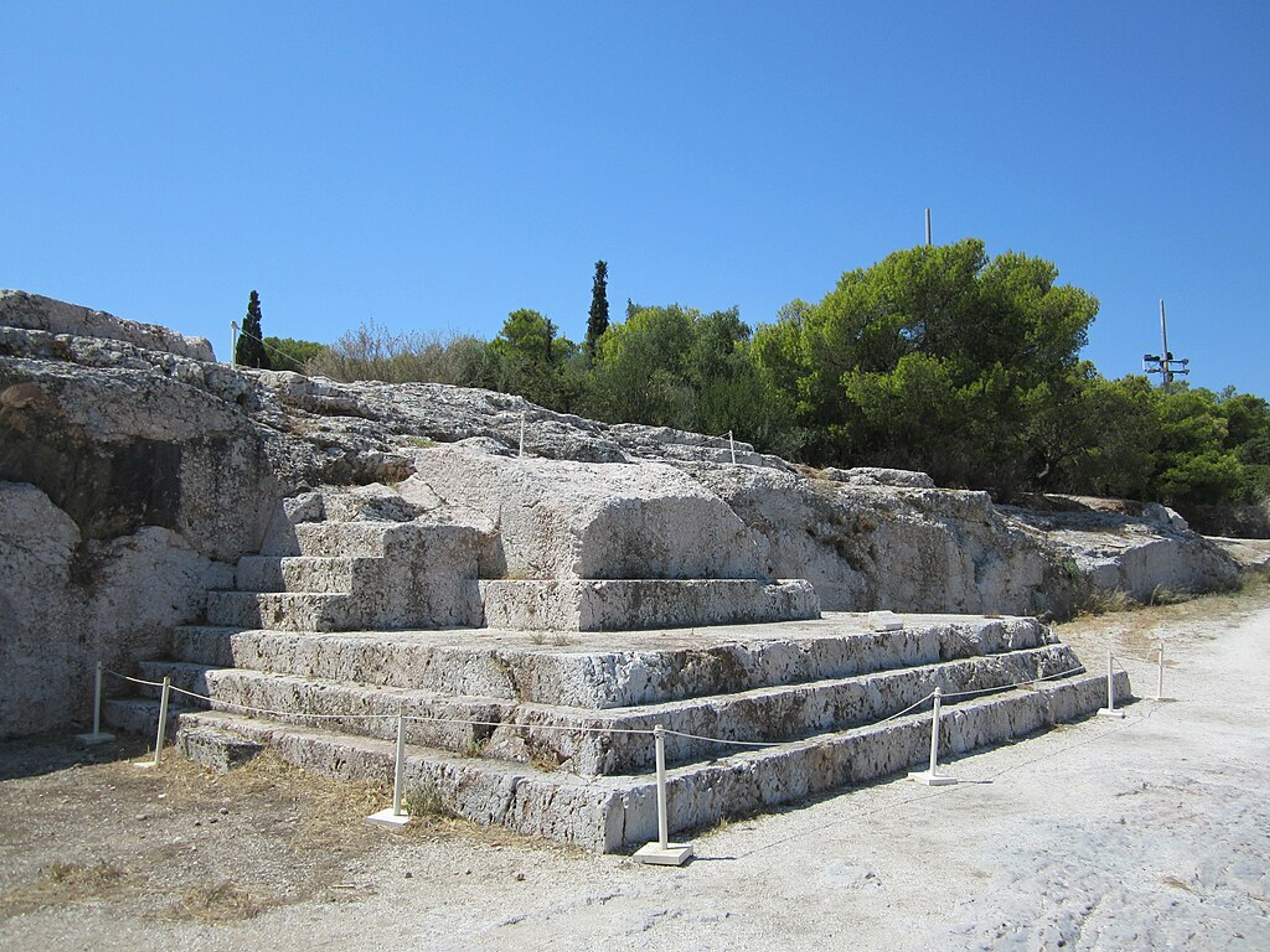A Democratic Revival 2,345 Years in Waiting

A Democratic Revival in Athens
On a hilltop in Athens, Ancient Greece’s great democratic tradition of citizen deliberation was revived—this time enhanced by today’s cutting edge technology—to deliberate on the future of Europe in a radical experiment of transnational, translocal citizen engagement.
Ask Athenians around the Acropolis today about the PNYX or PNYKA and most have no idea what you are talking about. These historical sites—integral to the democratic legacy of ancient Athens—are largely overlooked by tourists and residents alike.
Yet, nested on the hillside opposite the Acropolis, the PNYX holds a profound significance. This is where the assembly of male citizens of Athens, called the Ecclesia, met to deliberate over and decide the affairs of the city during the 5th and 4th centuries B.C. The 500 citizens in the Boule, which administered day-to-day business and convened the Ecclesia, were randomly selected and renewed each year. Chance was at the heart of ancient democracy.
2,345 years later, this ancient democratic practice was revived on the plateau where it was born, under the aegis of a pan-European project called the Democratic Odyssey. This modern Odyssey is a campaign to institute a standing citizens’ assembly in the EU grounded in a proof of concept—an transnational and traveling assembly of randomly selected members, serving on a yearly rotating and with new members joining at each landing port. It unites the ancient Athens’ tradition of citizens assemblies with the potentials unleashed by today’s cutting edge technologies, AI-enabled aggregation of views as well as translation between our 24 official European languages, with the goal of producing “citizens’ agenda on the future of the EU.”
One year after the Democratic Odyssey’s launch at the Berggruen Institute’s European Center in Venice, the Assembly convened for the first time 200 citizens at the PNYX. For three days in September, this group of randomly-selected people from Athens, 29 European countries and non-European countries (as migrants and refugees) deliberated on how to make Europe more resilient to future storms.
Informed by their personal experiences of crisis over the last 15 years, from the Eurocrisis to Covid, citizens aged 16 to 80s considered what could be done upstream to prepare the spaces for future citizens' participation in navigating these storms. Some spoke English, others did not, but with the support of a mix of simultaneous translation, whisper translation and translation software, people from all walks of life discussed how to create a more resilient Europe. Their conversations were guided by trained facilitators, and art was incorporated throughout to encourage reflection, stoke creativity, and activate different kinds of thinking.
The Athens-based assembly is the first of five assembly meetings to be held across Europe through the duration of 2025. From Florence to Warsaw, the Democratic Odyssey will continue to assemble local and transnational members to continue to deliberate in-person and online on important questions about the future of Europe and formulate an agenda.
Moreover, this translocal approach helps plant more democratic seeds in the cities it visits, by helping everyday citizens activate their sense of democratic agency and discover enjoyment in civic engagement. These democratic seeds are already germinating in Athens, as evident in the municipality’s exploration of the creation of a youth council and neighborhood participatory councils.
The world today often seems bleak as we learn again the meaning of war on our continent, face the creeping specter of authoritarianism, witness the trampling of women’s rights, and grapple with the disappearance of trust among citizens and between them and their politicians—among many other brewing crises.
But there is hope. The Democratic Odyssey is part of a hugely inspiring movement across Europe and the planet experimenting with radical democracy and citizens’ empowerment—of the kind that may help subvert autocracies from below and renew the old promise of self-government. This project is motivated to contribute in its own small way in tipping the scales in this epic struggle between backsliding and progress.
This project invites us to imagine a world where citizens are more than just sporadic voters, but instead their voices resonate perpetually through the corridors of power. It also challenges the EU to reinvent itself as a laboratory for a radical transformation of democracy beyond the state. This is the vision that the Democratic Odyssey aims to bring to the European Union through the establishment of a permanent, transnational Standing Citizens’ Assembly.
This is not an unrealistic goal. To make a difference to policies and politics in Europe, the transnational Assembly intends to be connected to both the EU institutional policy making machinery and the broader public sphere, rooted in civil society and its participatory ecosystem. In time, it aims to become a true fixture of the EU landscape, in constant dialogue with the European Parliament to bring together electoral and participatory representation. A new vision of citizen power is beaconing.